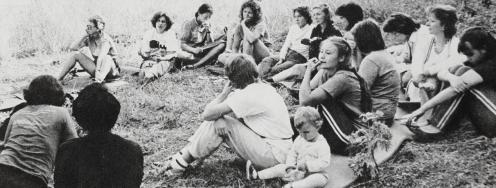Berlin '89: When the Impossible Became Real
I was in Berlin 20 years ago this week. I saw the impossible first-hand: the people of Germany taking down the Wall.
I was then working on the professional staff of the House Armed Services Committee. We were on a staff tour of NATO military bases and arrived in Berlin during this critical week by pure coincidence. When our delegation took off from Andrews Air Force base outside of Washington the Warsaw Pact was alive and apparently formidable. By the time we landed in Europe, it was falling apart.
It is amazing how quickly structures, paradigms, and ideologies that experts believe unchangeable can change. Forces can build undetected for decades, then explode in rapid, transformational movement.
I arrived in Berlin a couple of days after November 9. I was one of the last people to walk through the famous Checkpoint Charlie border crossing. When I passed through in the morning, East German guards were still checking passports. When I strolled back down Unter den Linden, after having a scotch with some Cubans in an East Berlin bar, marveling at the Ishtar Gate from Babylon in the Pergamon Museum, examining World War II bullet holes still peppering some buildings, and joining a student protest over required courses in Marxism-Leninism, the guards were gone. The checkpoint was open for free passage in both directions. As far as I know it never re-opened. Today, it is a tourist attraction.
At a German NATO base we got the standard briefing on NATO military strategy. But when the map went up showing how NATO forces would react to an offensive lead by East German tank divisions, we just looked at each other. We asked the general briefing us what the strategy was now, that the Eastern European forces would not be part of a Soviet offensive. He couldn't answer. We didn't know.
It took years for the West to understand that the events of 1989 were not a fraud or a feint. David Hoffman describes in this new book, The Dead Hand, how President George H.W. Bush "lost" the year 1989.
The fall of the wall was a European earthquake, but in Washington and Moscow, miscommunication and suspicion meant the leaders were badly out of sync. While Soviet leader Mikhail Gorbachev was eager to move on cutting nuclear arsenals, President George H.W. Bush was cautious and uncertain, and a promising moment slipped away.
We cannot let another policy moment slip away. Twenty years after, we are at another historic point, ripe with transformational possibility. Domestically, we see it in issues like health care. Internationally, we see it in potentially profound changes in nuclear forces and policies, and in the very structure of global relations.
The transformation will be resisted. The forces of reaction are strong, as they were in 1989, arguing against change, clinging to the tired policies and weapons of the past. They tell us now, as they did before November 9, that change is impossible, that we are naïve to question the Cold War weapons and strategies, that diplomacy is appeasement, that they are the realists and we, the idealists.
But I have seen the impossible happen. I have a chunk of the wall in my bookcase to prove it. I have seen what the determined action of millions of people can do. I have seen decades of history change in days. These moments are not flukes; they are more the norm than we acknowledge.
We are in such a moment now. We must, like the Berliners of 1989, make the most of it.



